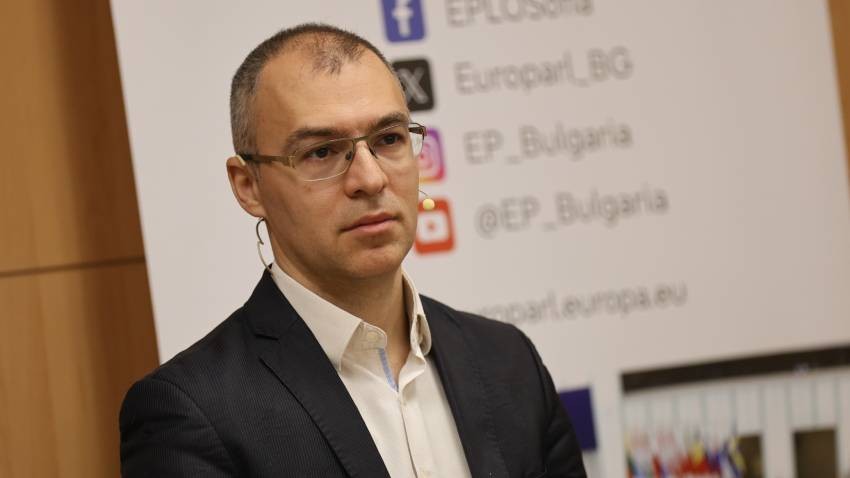“Civil servant is not a dirty word” – with these words, civil servants organized a protest in front of the Council of Ministers building at the beginning of April. The reason was the fact that salaries in public administration had dramatically fallen behind the average monthly salary in the country, with a large portion of the people employed there earning salaries gravitating around the minimum salary (900 Leva per month, or EUR 460). That is why the Council of Ministers raised the salaries of almost 1,000 people by 21% as of the beginning of 2024. Apparently, there are people occupying responsible posts, with long years of experience and enviable professional expertise working for pay close to the minimum salary, including the inspectors from the Bulgarian Food Safety Agency, the Hail Suppression Agency, the labour inspectors and the inspectors from the Agriculture and Aquaculture sector and many other employees whose job it is to monitor that the implementation of the legal provisions in the country. 
Even though they have a responsible job to do, the public often snub civil servants. Public administration is often perceived as “bloated” and inefficient. People from businesses often compare their own efficiency and workload with that of the people from public administration, saying that the work organization is obsolete compared to the way public administration functions in other countries. They want to see administrative services digitized so members of the people do not have to meet with the local administration in person. 
“That is in the interest of the administration itself because the more the focus there is on the experts, who really do matter, the higher their pay,” says Dobromir Ivanov, head of the Bulgarian Entrepreneurial Association, with 500 companies from 70 different industries as its members. “We haven’t yet taught AI to say “this is not an information desk” (as desk clerks so often say – editorial note), I am joking, of course. If we want the country to function smoothly we need institutions that function well. That is what makes the question of public administration so important. Several things should be considered here – firstly, that the money in our country is made mostly by 1 million 700,000 people, and they are the people employed in the private sector. And the money the state pays the public administration comes from what they have earned – through taxes and social security payments. Pensioners, young people, university students, children, the unemployed, the socially disadvantaged and a lot of other people live on the money made by private entrepreneurs. This makes the question of how to make Bulgaria a wealthier country so we can all have more money a crucial matter. Figuratively speaking, there are around half a million people from the administration relying on the state budget, and that is a lot.”
The people from the Entrepreneurial Association say the “battle” for higher pay in public administration is their battle too as there are important sectors – attracting investments, education etc. – where it is difficult to find qualified staff because salaries are so low. “To raise salaries, however, the country has to grow richer on the one hand, and on the other – more technologies have to find a place in the administration,” says Dobromir Ivanov and gives as an example departments with 60 staff even though only 7 of them do the actual work, the rest do things that can easily be done by a machine. 
“We all have an interest in having highly-paid, highly-educated and motivated people there, people who understand what it means to be a public servant,” Dobromir Ivanov goes on to say.
It often happens that whether a given reform is going to happen or not is in the hands of the administration, but to this aim the administration has to be “won over” so it will work in the same direction as businesses, Dobromir Ivanov believes.
“The truth is that there are people at the ministries who have been working there for 25-30 years, and they occupy key positions. Given that ministers are changed every 9 or even 3 months, the people working at the ministries have a key role to play. Because when a new minister comes along with their numerous new and bold ideas, the administration tells them he is the last in a long line coming for just a short spell and believing they are going to start the reform. So, change itself is in the hands of the people who have been working in public administration for more than 25 years. But we have to find a way to work with them, based on what unites us instead of looking for more reasons to divide the nation.”
Political will and leadership are crucial in this process. “When people see there are no priorities, everything is done with a short time horizon and it is not clear where we are heading, the administration gets empowered and can put a brake on many things in the development of the country,” says Dobromir Ivanov, head of the Bulgarian Entrepreneurial Association.
Translated and posted by Milena Daynova
Photos: BGNES, BTA
The Bulgarian team is returning home with four medals from the Youth International Olympiad on Astronomy and Astrophysics (IOAA) , held in the Romanian city of Piatra Neamț, the Ministry of Education and Science announced. The competition brought..
The Association of Bulgarian Schools in America invites children from the Bulgarian community in North America to participate in a competition dedicated to November 1 - National Awakeners' Day, the organization announced on its..
Robert Joseph Miller, Bulgaria’s Honorary Consul in Nevada, was awarded the prestigious “Golden Laurel Branch” of the Ministry of Foreign Affairs for his exceptional merits in maintaining the diplomatic relations between the US and Bulgaria. The award..
The so-called Seal of Biliteracy was created in 2011 in the US state of California with the idea that in the conditions of a globalized..
On 27 October, the first meeting of Action CA-24150 “Values in Turbulent Times: Navigating Social Change and Challenges (VISTA)” took place in Brussels...
In the summer of 2014, photographer Philippe Bazin and philosopher Christiane Vollaire traveled around Bulgaria, investigating a series..

+359 2 9336 661
